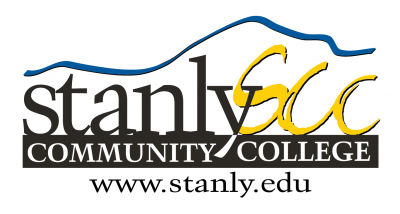
ALBEMARLE — While some community colleges across the state have seen a drop in enrollment numbers for this upcoming fall semester, Stanly Community College is not one of them. To handle the increased numbers while maintaining safety during the global pandemic, SCC has released a detailed plan for the fall semester.
SCC President Dr. John Enamait told SCJ on Thursday that he is “cautiously optimistic” about the status of fall enrollment.
“When we started registration, we were down significantly, but we have caught up,” Enamait said. “Now, we’re actually a little positive, so our current fall enrollment is actually higher than it was this time last year. We still have three weeks before the semester starts so anything could happen. I’m hoping that our enrollment will continue to be strong.”
Enamait said that his staff has received feedback from the parents of recent high school graduates who may have been planning to go to a university but are having second thoughts due to health, safety and financial concerns.
“We’re starting to develop a campaign targeting those students who may not be thinking about our college transfer degrees at the community college and what a great deal they are,” he said. “We’ve got an articulation agreement with universities who will accept the 60 credit hours of our two-year degrees. Parents and students can save quite a bit of money while not really losing anything.”
SCC recently released its “Return to Campus Guidelines” that navigate the methods and safety precautions the college is taking to fight against the spread of COVID-19 as classes begin on Aug. 17.
Citing a higher-education exemption in Gov. Roy Cooper’s latest executive order, SCC will not enforce the usage of face masks on campus, though masks will be highly encouraged with reminder signs posted on walls and doors.
The college has provided masks, face shields, gloves, sanitizers and disinfectants to campus personnel. In areas of its campus that are more public facing than others, SCC has installed plexiglass partitions; to assist with flow of foot traffic, certain doors on campus are labelled as entry and exit only.
As for the classes themselves, SCC will deliver them to students in three variations: on-campus face-to-face courses, online courses structured through the CANVAS Learning Management Platform, and hybrid courses featuring both approaches.
“When we start trying to decide what we are doing face-to-face, it’s those classes that are heavy in lab and contact hours,” Enamait said. “The lecture classes — English for example — are easier for us to offer online than something like welding. We also did take into account how comfortable faculty were in being in close proximity to students.”
Compared to past semesters, the college is offering a higher number of online classes than it normally does. The courses which do require face-to-face involvement will have a limited maximum enrollment in order to encourage social distancing.
SCC students will operate under a situational flexibility — if they are taking a class that has multiple formats (an online section and a seated section), they will be able to transfer to the online section if they find the safety of the seated section to be less than ideal.
Enamait mentioned that over the course of the summer, the college has encouraged teleworking as much as it can, though areas such as the admissions, the business office and library have required some staff on campus in order to prepare for the fall.
“As we’ve brought them back, employees have indicated that they do feel relatively safe, and that the college has done all we can to try to keep this virus from spreading,” he said. “Generally speaking, they have repeatedly expressed appreciation for what we have done to try to protect them and ensure their safety. That has held true throughout the pandemic.”
